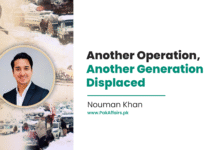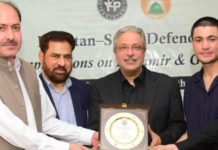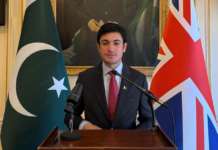Culture is the characteristics and knowledge of a particular group of people, defined by everything, from language, religion, cuisine, social habits, music, and arts. “Culture is that complex whole which includes knowledge, beliefs, arts, morals, law, customs, and any other capabilities and habits acquired by [a human] as a member of society.
The society and culture of Pakistan comprise numerous ethnic groups: the Punjabis, Kashmiris, Sindhis in the east, Muhajirs, Makrani in the south; Baloch, Hazaras, and Pashtuns in the west; and the Dards, Wakhi, Baltis, and Burusho communities in the north.
Every great nation enjoys its own culture. Similarly, Pakistani culture is very distinct due to its Islamic nature and rich historical background. Pakistani culture has the following characteristics:
Islamic Ideology
Pakistani culture is actually a part of the contemporary Islamic civilization which draws its value and traditions from Islam and rich Islamic history.
The majority of the population comprises Muslims and follows teachings of Islam, i-e., belief in one Allah, Prophet Hood of Hazrat Muhammad P.B.U.H, brotherhood, equality and social justice, etc.
Islam is a religion of peace and patience. Pakistani society is very cooperative. Its National calendar is marked by religious days which are observed with great enthusiasm.
These values are something that is given due significance. This culture revolves around religion which teaches equality.
Literature
Pakistani literature originates from when Pakistan gained its independence as a sovereign state in 1947. The common and shared tradition of Urdu literature and English literature of Greater India was inherited by the new state. Over a period of time, a body of literature unique to Pakistan emerged, written in the major languages, including Urdu, English, Punjabi, Pashto, Seraiki, Balochi, and Sindhi.
Poetry
Poetry is a highly respected art and profession in Pakistan. The pre-eminent form of poetry in Pakistan almost always originates in Persian, due in part to the long-standing affiliation and heavy admiration the region’s rulers once had for certain aspects of Persian culture.
The enthusiasm for poetry exists at a regional level as well, with nearly all of Pakistan’s provincial languages continuing the legacy. Since the independence of the country in 1947 and the establishment of Urdu as the national language, poetry is written in that language as well.
The Urdu language has a rich tradition of poetry and includes the famous poets Muhammad Iqbal (national poet), Mir Taqi Mir, Ghalib, Faiz Ahmad Faiz, Ahmad Faraz, Habib Jalib, Jazib Qureshi, and Ahmad Nadeem Qasmi. Apart from Urdu poetry, Pakistani poetry also has blends of other regional languages.
Balochi, Sindhi, Punjabi, Seraiki, and Pashto poetry have all incorporated and influenced Pakistani poetry. Prominent ethnic poets of Pakistan include Khushal Khan Khattak, Rahman Baba. Shah Abdul Latif Bhittai, Rachal Sarmast, Baba Fareed, Bulleh Shah, Waris Shah, Shah Muhammad, Khwaja Farid, and Sultan Baho amongst numerous other poets.
Music
The variety of Pakistani music ranges from diverse provincial folk music and traditional styles such as Qawwali which is played by men clapping, singing, and playing drums, and Ghazal Gayaki to modern forms fusing traditional and Western music.
Pakistan is home to many famous folk singers such as the late Alam Lohar, who is also well known in Indian Punjab. The arrival of Afghan refugees in the western provinces has rekindled Dari music and established Peshawar as a hub for Afghan musicians and a distribution center for such music abroad.
Painting
During the 16th to 18th centuries, Mughal painting developed, heavily influenced by Persian miniatures. Abdul Rehman Chughtai, Sughra Rabbi, Ustad Allah Baksh, Aboo B. Rana, Ajaz Anwar, Ismail Gulgee, Jamil Naqsh, Ahmed Pervez, and Sadequain are prominent and outstanding creative painters of Pakistan. Pakistani vehicle art is popular folk art.
Sport
The official national sport of Pakistan is field hockey, but cricket and soccer are the most popular sports. The Pakistan national field hockey team has won the Hockey World Cup a record four times, 1971, 1978, 1982, and 1994.
The Pakistan national cricket team won the Cricket World Cup in 1992, were runners-up in 1999, and co-hosted the games in 1987 and 1996. They also won the ICC World Twenty20 in 2009 and were runners-up in 2007.
The team also won the Austral-Asia Cup in 1986, 1990, and 1994. In 2017, Pakistan won the 2017 ICC Champions Trophy against their rival India. The women’s team is yet to win a world cup. At the international level, Pakistan has competed many times at the Summer Olympics in field hockey, boxing, athletics, swimming, and shooting.
Hockey is the sport in which Pakistan has been most successful at the Olympics, winning three gold medals (1960, 1968, and 1984). Pakistan has hosted several international competitions, including the South Asian Federation Games in 1989 and 2004.
Cuisine
Culinary art in Pakistan is mainly a mix of Indian cuisines with Middle Eastern, Central Asian, and Afghan influence. There are variations of cooking practices across the country, mostly from spicy in Punjab and Sindh to steamed and boiled in Khyber Pakhtunkhwa and Balochistan.
Urban centers of the country offer an amalgamation of recipes from all parts of the country, while food with specific local ingredients and tastes is available in rural areas and villages.
Different specialties exist throughout the country mostly different types of rice like Biryani, Pulao, or Boiled rice with vegetables and meat are used with Korma and desserts.
There are also local forms of grilled meat or kebabs, Kheer desserts, and a variety of hot and cold drinks.
Eid Celebration
The two Ends, Eid ul-Fitr and Eid ul-Adha commemorate the passing of the month of fasting, Ramadan, and the willingness of Hazrat Ibrahim (Abraham)to sacrifice his son Hazrat Ismael (Ishmael) for Allah.
On these days, there are national holidays and many festival events that take place to celebrate Eid. As Pakistan is a Muslim majority state, there are three days off for all businesses and government offices.
On the night before Eid, people search for the new moon to mark the end of Ramadan and arrival of Eid ul-Fitr. The day starts with morning prayers, then returning home for a large breakfast with family members.
The day is spent visiting relatives and friends and sharing gifts and sweets with everyone. During the evening, Pakistanis often party, visit restaurants, or relax in city parks. On Eid ul-Fitr, money is given for charity and as gifts to young children.
Independence Day
On 14 August, the people of Pakistan celebrate the day when Pakistan gained its independence from British, India, and became an independent state for Muslims of South Asia.
The day begins with gatherings and prayers in mosques all across Pakistan in which people pray for the betterment and success of their country.
Early in the morning, a 21-cannon salute is given to all those who contributed and lost their lives for attaining Independence. Flag hosting ceremonies are held in the capital Islamabad and all capital cities of other provinces.
Mega-events are organized all across the country, in which the people of Pakistan sing their national anthem and famous classical and pop singers sing various patriotic songs.
Famous governmental and private buildings are decorated with lights and the day is concluded by a spectacular firework in Major cities of Pakistan.




